"Spring Thaw Landscape Oil Painting 1901 Swedish Artist By Ankarcrona"
Signature bottom left - Edvard Alexander (Alexis) Ankarcrona (1825 - 1901), was a Swedish painter and military (this is one of the last works of the artist!). This artwork perfectly demonstrates the charm of early spring, a time when winter still lingers in the air but nature is slowly awakening from its slumber. We see a country road onto which melted snow flows from the hills in small streams. The artist painted the snow with thin brushes, which allowed him to depict in great detail its porosity and heterogeneity, which snowdrifts acquire with the arrival of warmth. Trees are depicted in the foreground: spruce and birch trees, casting bizarre shadows in the rays of the setting sun and creating additional depth. In the distance you can see the roof of a house, its chimney billowing smoke, as if inviting the traveler to share with him the warmth and comfort in the cool spring weather. The winter sky is bluish-gray and cloudless. Ankarcrona's skill as a painter is evident in the way he captures the subtle nuances of the changing seasons. Antique oil painting on canvas, signed, unframed.
Size app.: 50.5 x 74.5 cm (roughly 20 x 29.3 in), sells unframed. Overall in very good ready to hang condition with just minimal wear. Please study good resolution images for cosmetic condition. In person actual painting may appear darker or brighter than in our pictures, strictly depending on sufficient light in your environment. Weight of app. 1 kg is going to measure 2 kg packed for shipment.
He started as a soldier in the Uppland regiment and advanced to sub-lieutenant. In 1852 he quit the military to devote himself entirely to painting. He became famous through his landscape paintings (studied painting from P. D. Holm). He was the brother of the chief hunter Victor Ankarcrona, the soldier and artist Henric Ankarcrona. Edvard Alexander Ankarcrona is represented at Norrköping's Art Museum and National Museum. Active at Gustavsberg's factories as an artist during the 1870s - 1880s.



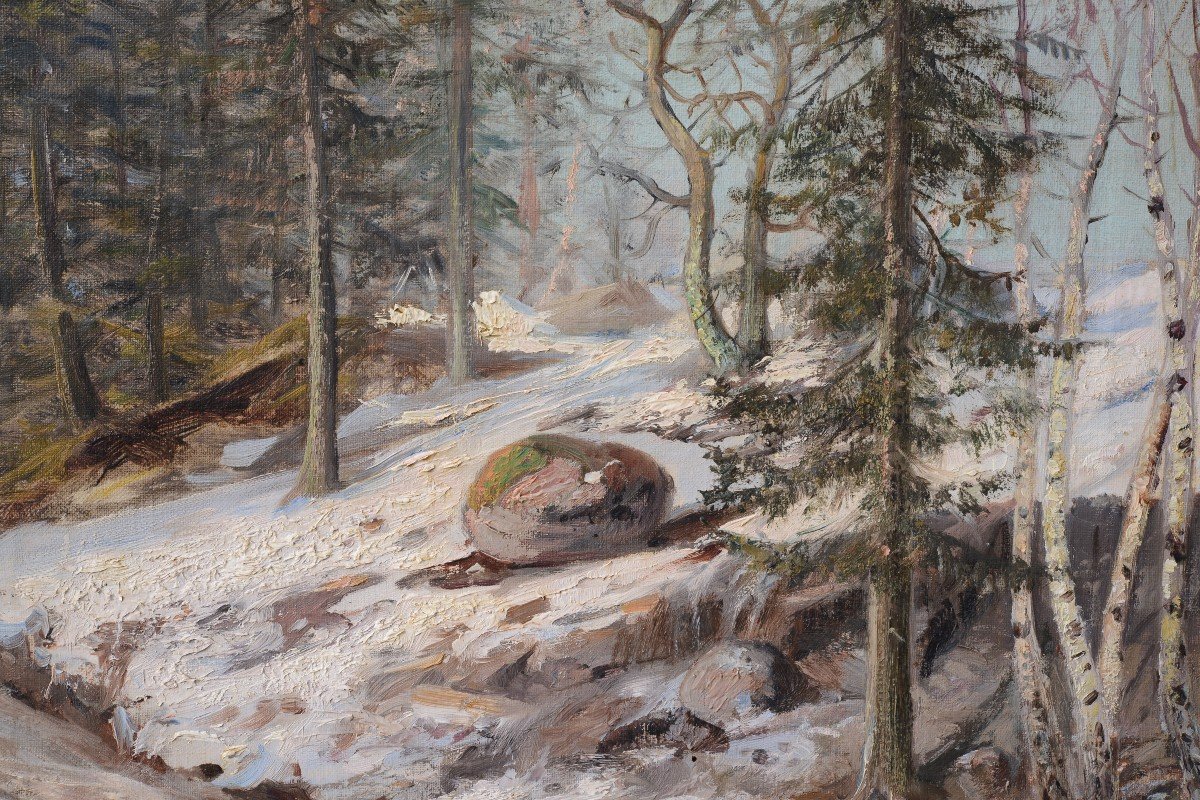
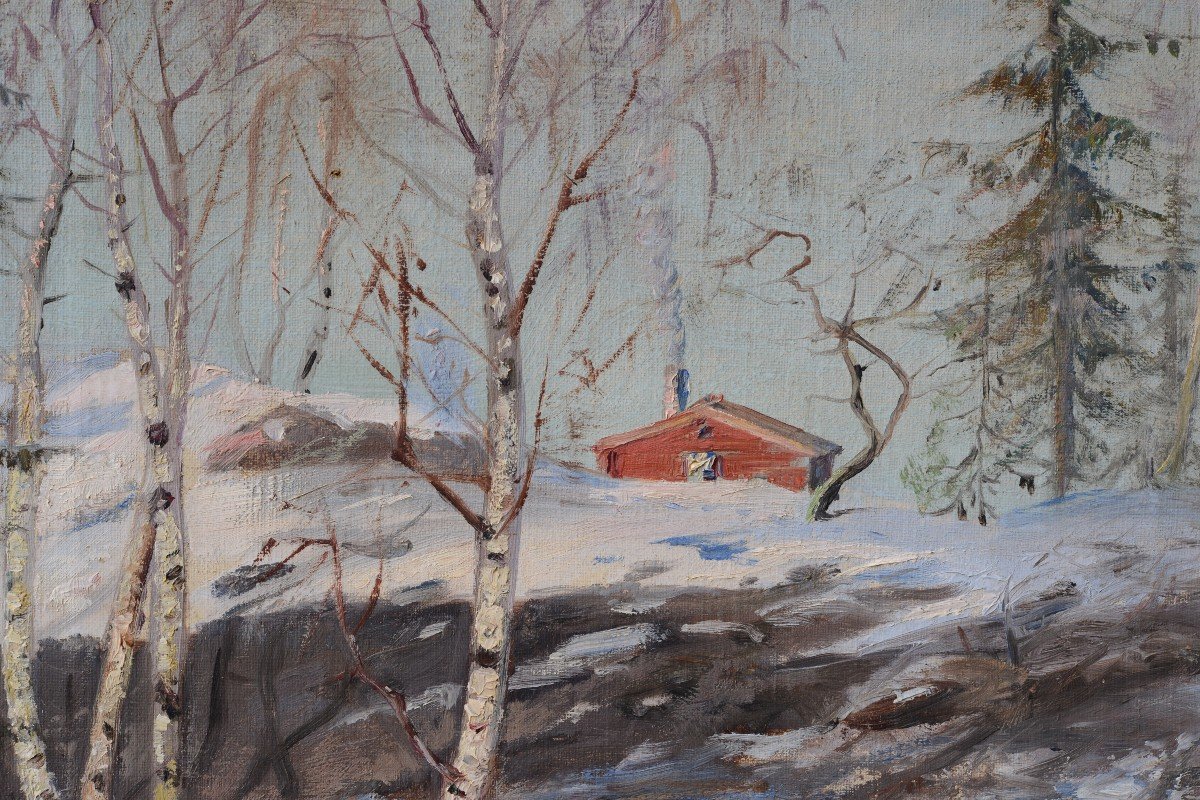
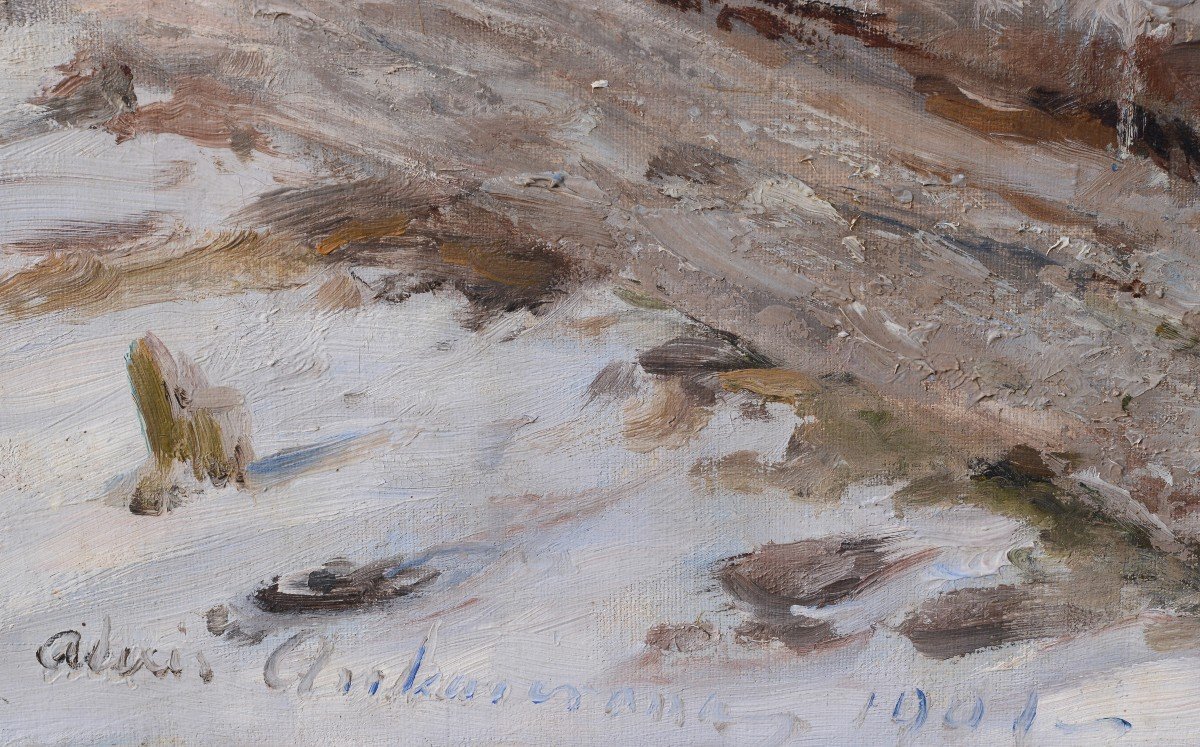
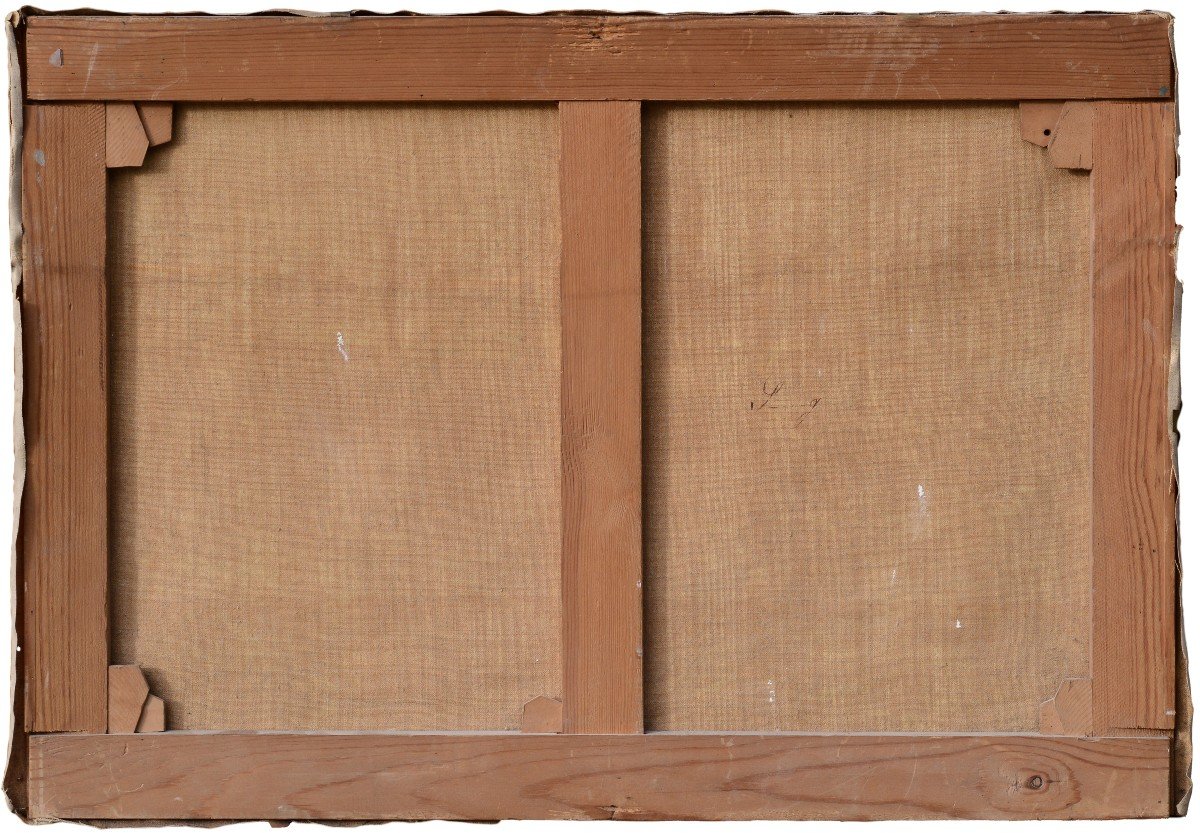
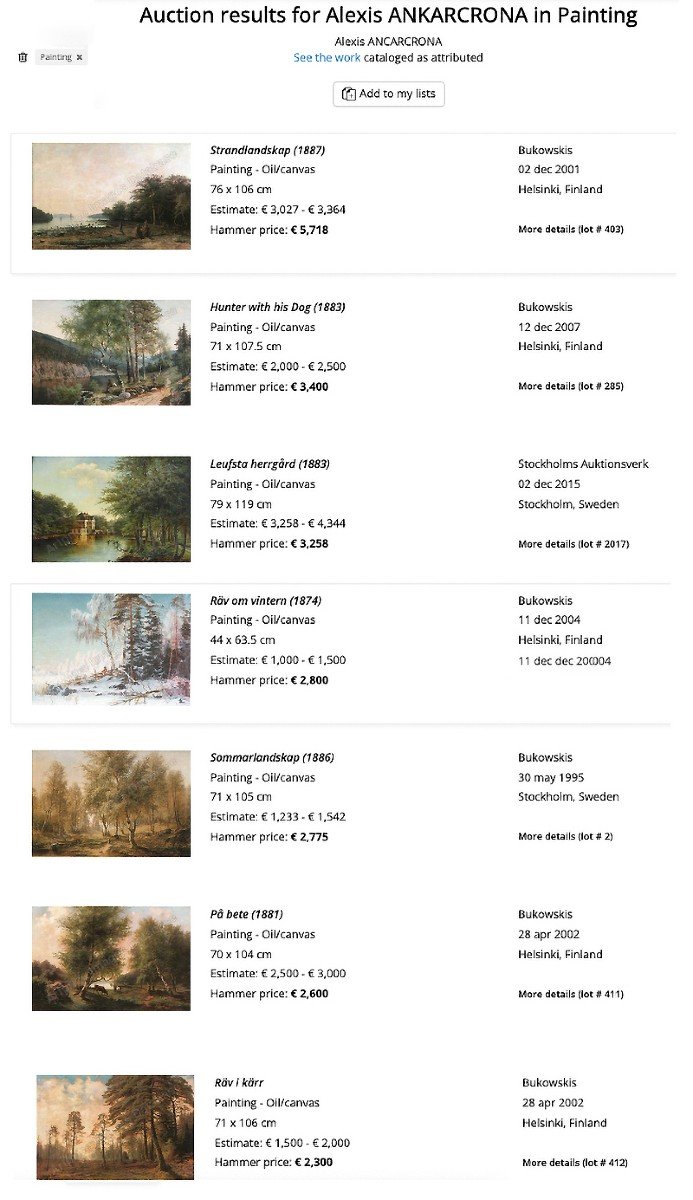
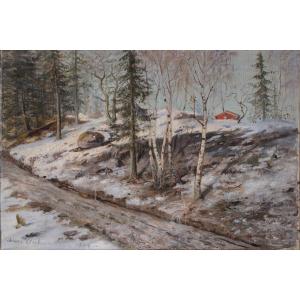










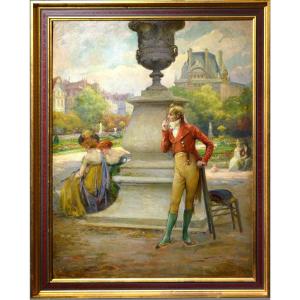










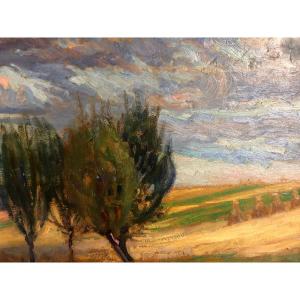


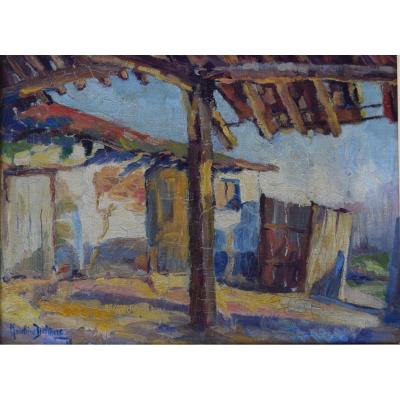



 Le Magazine de PROANTIC
Le Magazine de PROANTIC TRÉSORS Magazine
TRÉSORS Magazine Rivista Artiquariato
Rivista Artiquariato